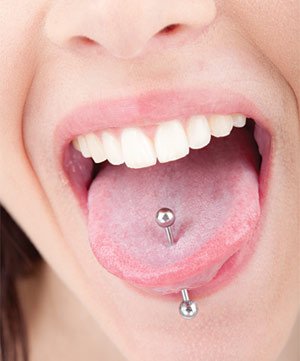It is our goal to keep your mouth healthy, your teeth fully functional, and your smile bright — and we are proud of all the services we offer to do exactly that. At the same time, we want you to understand all that modern dentistry in general has to offer you. To that end, we have assembled a first-rate dental library in which you can find a wealth of information on various dental topics, including:
Cosmetic & General Dentistry
From a thorough professional cleaning to a full smile makeover, there is an amazing array of services that cosmetic and general dentists offer to make sure your teeth stay healthy, function well and look great. If your smile is not all you want it to be, this is the place to start. Read more about Cosmetic & General Dentistry.
Emergency Dental Care
When you have a dental emergency — whether it's caused by a sudden accident or chronic disease — your teeth and/or the tissues of the mouth that surround them need to receive proper care right away. It's also important to be aware, before you're actually in the situation, of what you can do to ensure the best outcome. Read more about Emergency Dental Care.
Endodontics
This is the branch of dentistry that focuses on the inside of the tooth — specifically the root canals and sensitive, inner pulp (nerve) tissue. When this tissue becomes inflamed or infected, a root canal procedure may become necessary. But contrary to the popular myth, a root canal doesn't cause pain, it relives it. Read more about Endodontics.
Implant Dentistry
If you are missing one or more teeth, dental implants offer the comfort and security of a permanent replacement that looks and functions just like your natural teeth. Dental implants also help preserve the tooth-supporting bone in your jaw that naturally deteriorates when even one tooth is lost. Read more about Implant Dentistry.
Oral Health
Oral health is an essential component of general health and well-being. Good oral health means a mouth that's free of disease; a bite that functions well enough for you to eat without pain and get ample nutrition; and a smile that lets you express your happiest emotions with confidence. Read more about Oral Health.
Oral Hygiene
A major goal of modern dentistry is to help you keep your teeth and gums healthy for a lifetime. By following a conscientious program of oral hygiene at home, and coming to the dental office for routine cleanings and exams, you have the best chance of making this goal a reality. Read more about Oral Hygiene.
Oral Surgery
The word “surgery” often brings to mind a stay in the hospital, general anesthesia, and perhaps a lengthy recovery period. However, the experience of having oral surgery is usually very different from that. Some common oral surgery procedures include: tooth extractions, dental implant placement, and biopsies of suspicious oral lesions. Read more about Oral Surgery.
Orthodontics
Adults and kids alike can benefit from the boost in self-confidence that comes from having a great-looking smile with beautifully aligned teeth. Orthodontic treatment can even improve chewing, speaking and oral hygiene in certain cases. And with today's virtually invisible orthodontic appliances, it's possible to keep your treatment a private matter… until your new smile is unveiled, of course! Read more about Orthodontics.
Pediatric Dentistry
It's never too early to get your child started on the path toward a lifetime of good oral health, and there are many services to do exactly that. Monitoring your child's dental growth and development, and preventing and intercepting dental diseases along the way, is the primary focus of pediatric dentistry. Read more about Pediatric Dentistry.
Periodontal Therapy
If you want to keep your teeth for life — a completely reasonable goal in this day and age — you need to make sure the tissues that surround them are also healthy. Should gum problems arise, you may need periodontal therapy to restore diseased tissues to health. Read more about Periodontal Therapy.
Technology
In the field of dentistry, new technology is constantly changing the way diseases are diagnosed, routine procedures are performed, and illnesses are prevented. Although they may seem unfamiliar at first, new and improved dental technologies offer plenty of real benefits for patients. Read more about Technology.
 At the present time, oral piercings such as tongue bolts, cheek studs, and lip rings seem to be in vogue among a certain number of young people. Whether you find these bodily adornments appealing or repulsive is a matter of personal taste — but whichever side of the fashion divide you're on, there are a few things you should know about the impact they can have on your oral health.
At the present time, oral piercings such as tongue bolts, cheek studs, and lip rings seem to be in vogue among a certain number of young people. Whether you find these bodily adornments appealing or repulsive is a matter of personal taste — but whichever side of the fashion divide you're on, there are a few things you should know about the impact they can have on your oral health.
According to the Journal of the American Dental Association, the tongue and lips are the most common sites for intraoral piercings. In either location, the ornament is likely to come into contact with teeth, gum tissue, and other anatomical structures in the mouth. And that's where the trouble may start.
The Anatomy of a Problem
The tongue, composed primarily of muscle tissue, is rich in blood supply and nerve endings; that's why a cut on the tongue is often painful and bloody. In a tongue piercing, a metal stud is inserted through a hole made in the tongue. The possibility of infection or the transmission of a blood-borne disease like hepatitis B exists in this situation. Rarely, the piercing may also cause immediate and severe facial pain. It's the long-term effects of an oral piercing, however, which give the most reason for concern.
As teeth regularly come into contact with the metal parts of the ornament, increased tooth sensitivity and pain may become a problem. Chipping or fracture of the teeth can also occur, which may require tooth restoration. Teeth that have already been restored (with crowns, for example) may be even more prone to damage. Plus, wherever it's located, jewelry in the mouth can trigger excessive saliva flow, impede speech, and cause problems with chewing and swallowing.
Periodontal (gum) disease can also result from wearing an oral piercing. This may first show up as injury to the soft gum tissue, and later as gum recession. It's important to understand that before the gums can recede, some of the underlying bone in the jaw must be lost. Following bone loss, inflammation and infection of the gums may occur.
When gums recede, tooth roots become exposed; this makes tooth decay more likely, since roots lack the protective enamel covering of the tooth's crown. Some studies have even shown that, over time, this condition makes gum disease more likely — primarily because it's more difficult to practice good oral hygiene with an irregular gum line. Besides causing problems in the mouth, advanced gum disease can have a potentially negative effect on your general (systemic) health.
It's Your Health — and Your Choice
If you're old enough to get an oral piercing, you're old enough to take an active part in maintaining your own oral health. If you are thinking about having a tongue bolt, lip ring, cheek stud, or other ornament placed in your mouth, talk to a dental professional about it first. Due to the increased potential for dental or periodontal problems, you will likely need to have more frequent checkups, and pay special attention to your oral hygiene.
And if the time comes when you decide that the piercing you got on an impulse isn't what you want any more, take heart: Removing it will immediately reduce your disease risk, and thus instantly improve your oral health!
Related Articles

How to Help Your Child Develop the Best Habits for Oral Health Proper oral health habits are easy to learn — and lead to behaviors that result in lifelong dental health. And the time to begin is as soon as your child's first baby teeth appear. From toothbrushing for your toddler to helping your teenager stay away from tobacco, Dear Doctor magazine offers the most important tips for healthy habit formation through childhood and beyond... Read Article